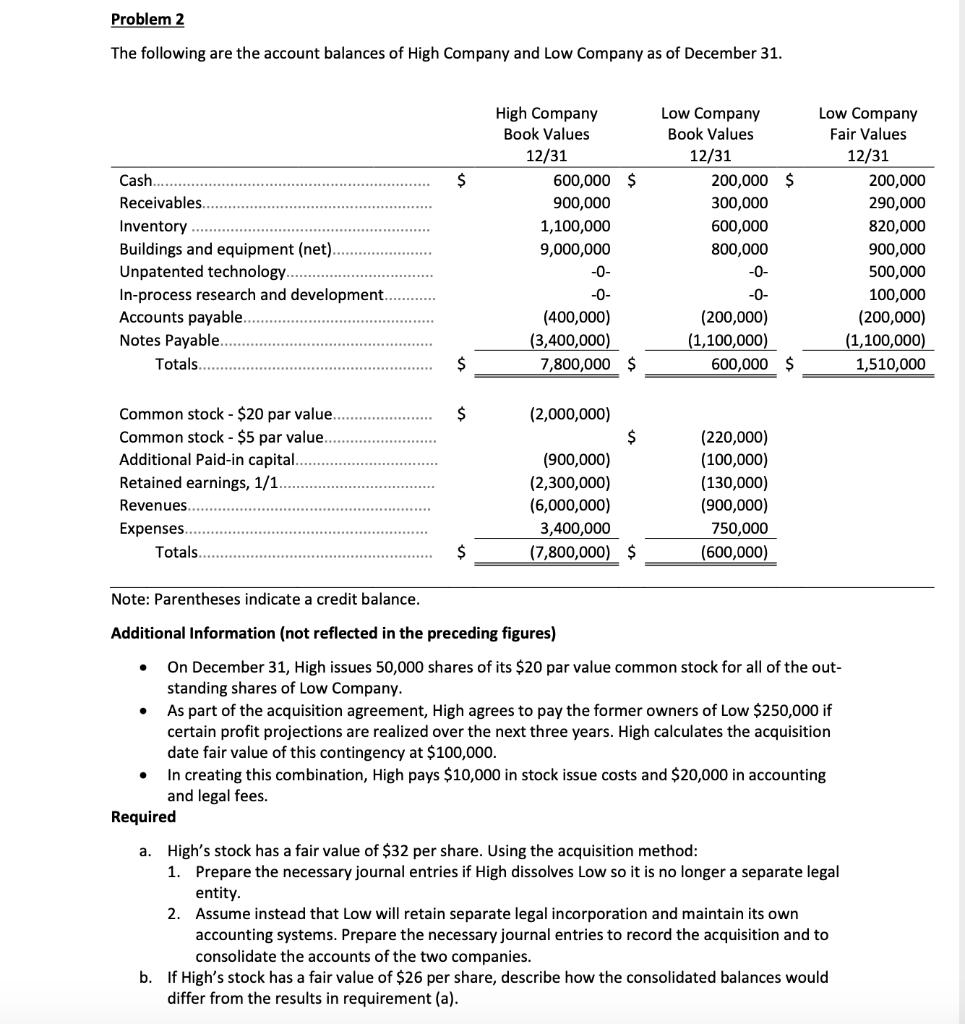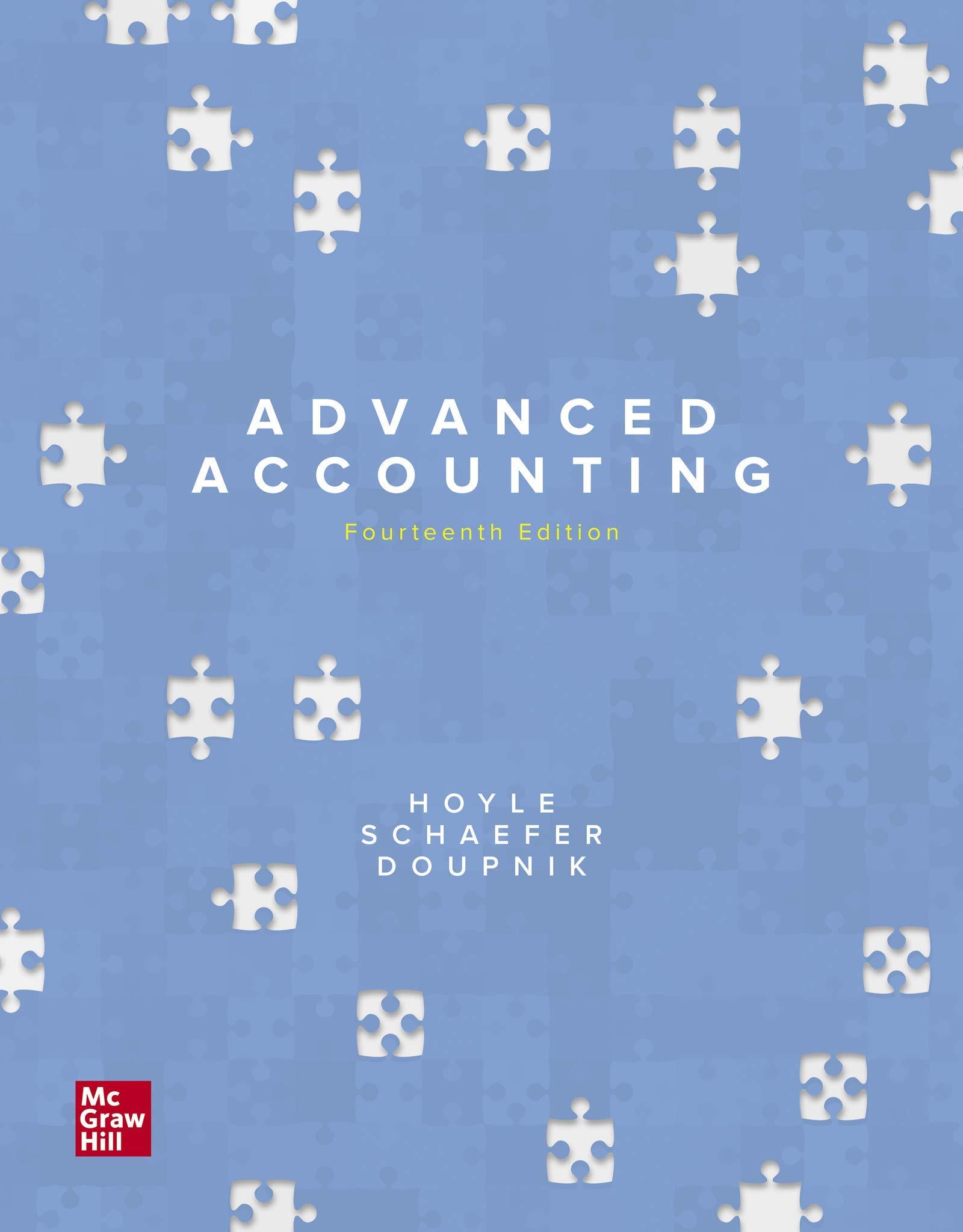Answered step by step
Verified Expert Solution
Question
1 Approved Answer
Problem 2 The following are the account balances of High Company and Low Company as of December 31. Low Company High Company Book Values

Problem 2 The following are the account balances of High Company and Low Company as of December 31. Low Company High Company Book Values 12/31 Book Values 12/31 600,000 $ Cash. Receivables. 900,000 Inventory 1,100,000 Buildings and equipment (net). 9,000,000 Unpatented technology. -0- In-process research and development.. -0- Accounts payable. (400,000) Notes Payable. (3,400,000) 7,800,000 $ Totals... Common stock - $20 par value. (2,000,000) Common stock - $5 par value. (220,000) Additional Paid-in capital.. (900,000) (100,000) Retained earnings, 1/1. (2,300,000) (130,000) Revenues. (6,000,000) (900,000) Expenses. 3,400,000 750,000 Totals.. $ (7,800,000) $ (600,000) Note: Parentheses indicate a credit balance. Additional Information (not reflected in the preceding figures) On December 31, High issues 50,000 shares of its $20 par value common stock for all of the out- standing shares of Low Company. As part of the acquisition agreement, High agrees to pay the former owners of Low $250,000 if certain profit projections are realized over the next three years. High calculates the acquisition date fair value of this contingency at $100,000. In creating this combination, High pays $10,000 in stock issue costs and $20,000 in accounting and legal fees. Required a. High's stock has a fair value of $32 per share. Using the acquisition method: 1. Prepare the necessary journal entries if High dissolves Low so it is no longer a separate legal entity. 2. Assume instead that Low will retain separate legal incorporation and maintain its own accounting systems. Prepare the necessary journal entries to record the acquisition and to consolidate the accounts of the two companies. b. If High's stock has a fair value of $26 per share, describe how the consolidated balances would differ from the results in requirement (a). $ $ $ $ 200,000 $ 300,000 600,000 800,000 -0- -0- (200,000) (1,100,000) 600,000 $ Low Company Fair Values 12/31 200,000 290,000 820,000 900,000 500,000 100,000 (200,000) (1,100,000) 1,510,000
Step by Step Solution
★★★★★
3.33 Rating (153 Votes )
There are 3 Steps involved in it
Step: 1
Answer 1 General Journal Debit Credit Cash 200000 Receivables 290000 Inventory 820000 Buildings and Equipment 900000 Unpatented Technology 500000 Rese...
Get Instant Access to Expert-Tailored Solutions
See step-by-step solutions with expert insights and AI powered tools for academic success
Step: 2

Step: 3

Ace Your Homework with AI
Get the answers you need in no time with our AI-driven, step-by-step assistance
Get Started


